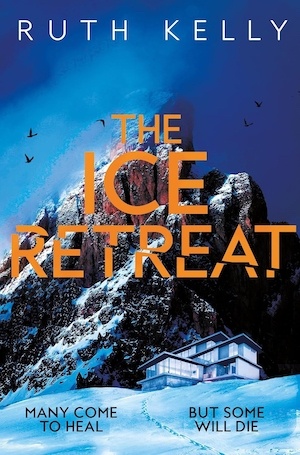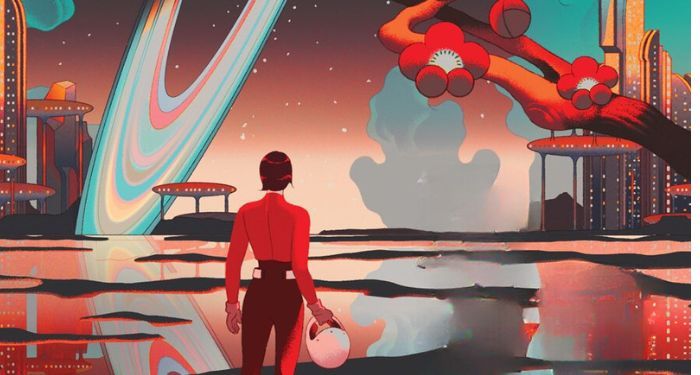Maude hasn’t spoken to Odette, her childhood best friend, in four years—ever since Maude’s magic “dried up.” But when Odette disappears and everyone assumes that she’s dead, Maude feels a mysterious pull toward Sicklehurst, an abandoned power plant that no one seems to be able to remember. As Maude enters Sicklehurst in search of Odette, she draws strength from the stories they used to share, tales of princes and monsters with happy endings. But the further Maude ventures into Sicklehurst, the more she discovers that her mysterious past may finally be catching up to her.
In A Hunger of Thorns, Australian author Lili Wilkinson creates a lush coming-of-age story that upends narrative expectations about witches and fairy tales. The world of the novel feels fantastical yet familiar: Magic exists, but it’s regulated by the government and controlled by corporations. Witches go to school, but the spells they learn are superficial and commoditized—enchanted laundry detergent, charms to find lost keys. Maude has grown up in this world, but as she uncovers truths about her family, their home and magic itself, she brings readers along through the twists and turns of a forgotten past.
Wilkinson’s prose is full of sensuality, shifting between the gorgeous and the grotesque. Maude’s fluctuating feelings have a visceral quality; her obsession with Odette is all-consuming, and the loss of her magical powers is tangibly painful. The physical body itself is also a central concern. In one scene, Maude observes that the presence of magic feels like “a heavy pull in my abdomen, like I’m getting my period,” and the performance of magic can require all kinds of bodily fluids.
A Hunger of Thorns isn’t a book for readers with weak stomachs or faint hearts, but it’s not devoid of hopefulness, either. Maude struggles with loss and loneliness but also finds a way to move beyond her past and appreciate her present. As she realizes how she’s allowed her search for Odette to drive her—and cause her to harm others—she also takes responsibility for her actions and holds others responsible for theirs. The narrative itself challenges Maude’s view of herself, demonstrating the power in genuine, honest self-reflection.
Gritty, bold and unflinching, A Hunger of Thorns turns a mirror on the darkest parts of growing up and asks readers to look closely at what’s reflected. Only by facing the truth, Wilkinson assures us, can we learn, heal and grow. It’s an ideal read for anyone in search of a surprising and original witchy fantasy.







